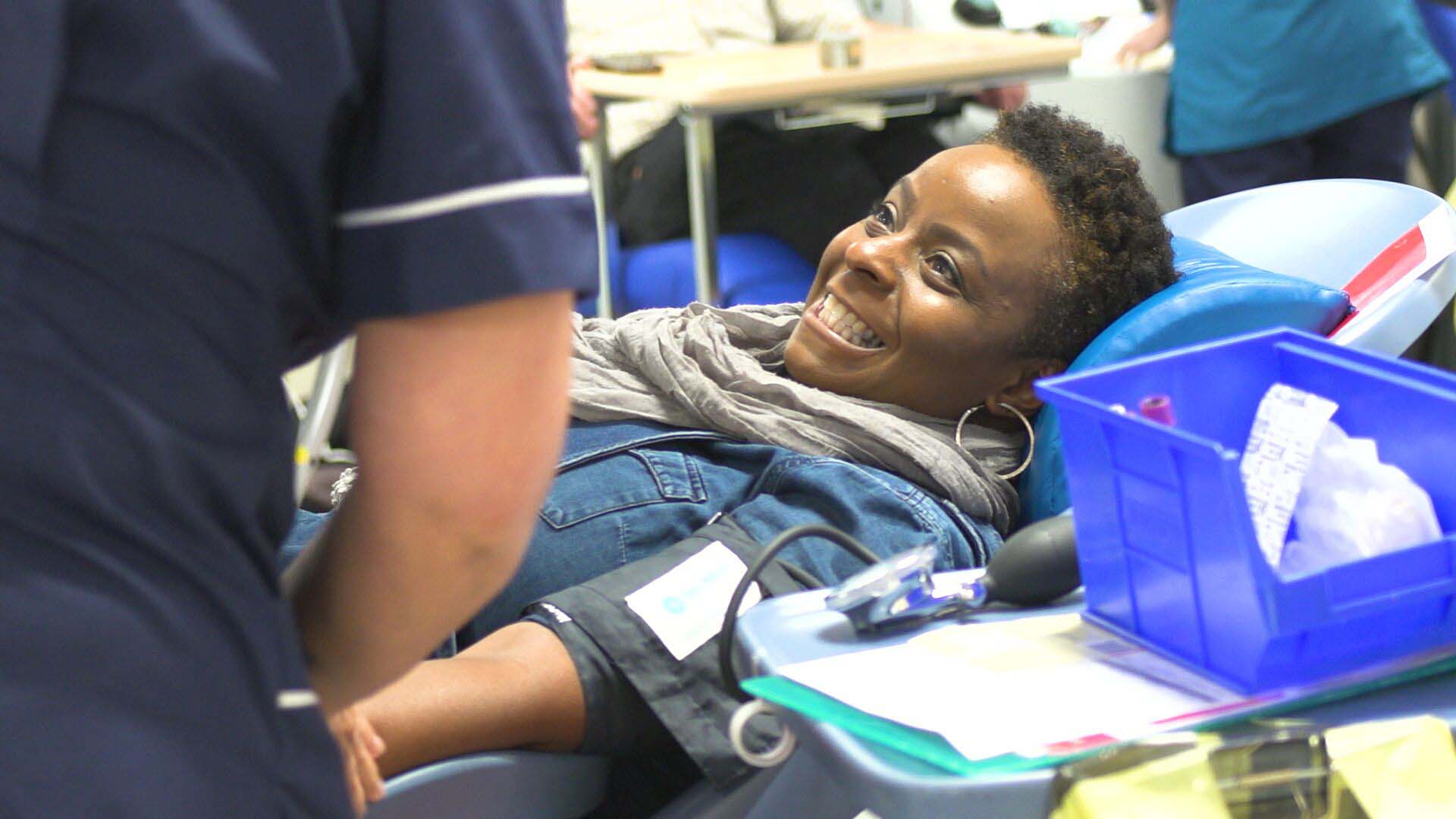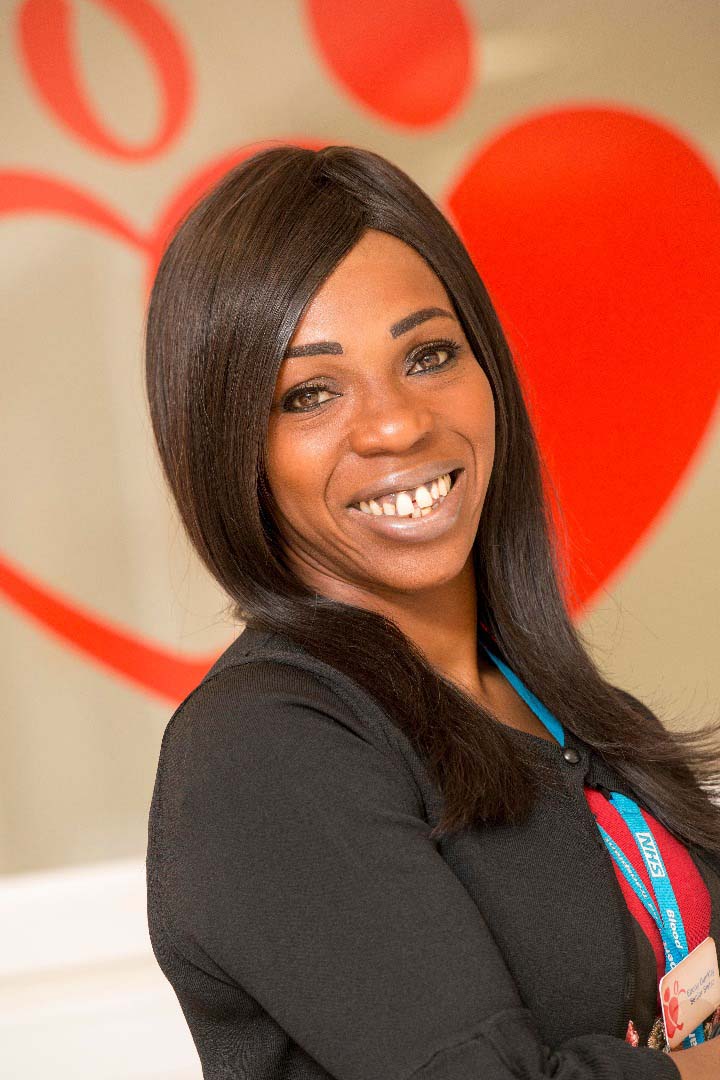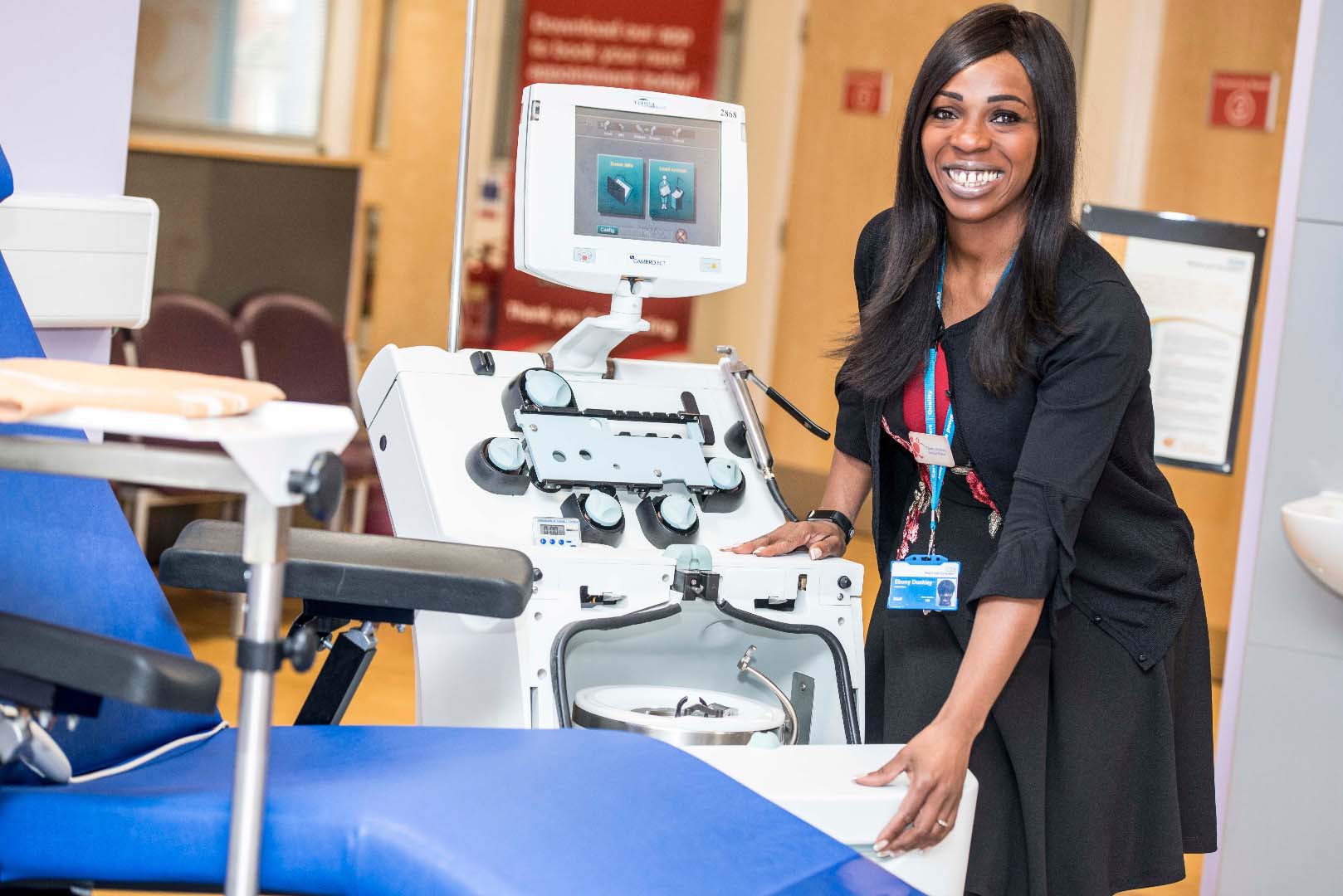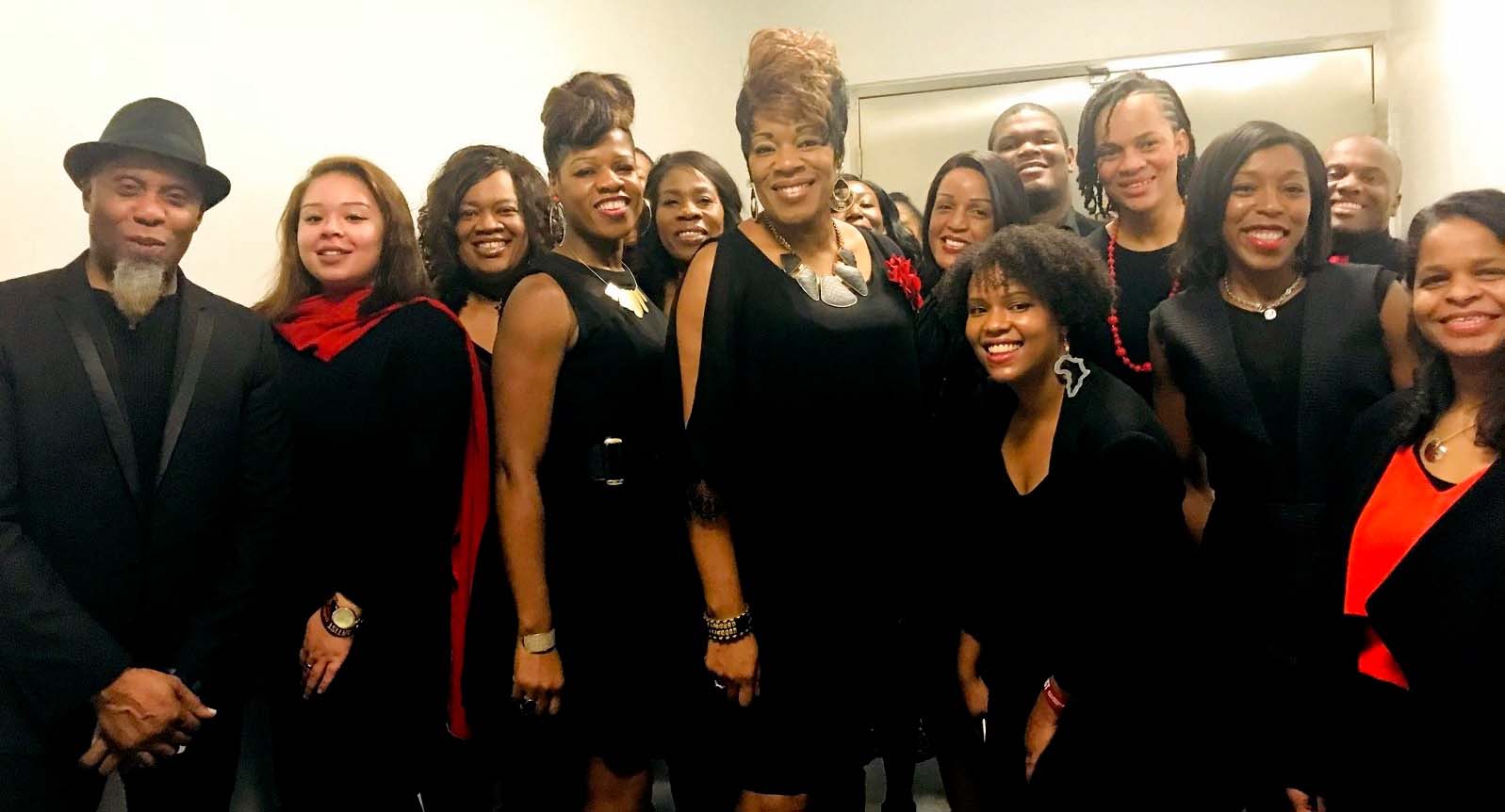Why we need more black blood donors
Sickle cell patients often need regular transfusions so the hunt for compatible donors is urgent

Sickle cell disease is the most common inherited genetic disorder in the UK. The disease is usually found in people of African heritage (in 90 per cent of British patients), although it’s also found in those from Caribbean, Middle Eastern and Mediterranean backgrounds.
That’s one of the reasons why we urgently need to sign up 40,000 black donors.
View the @GiveBloodNHS thread that went viral:
Do black people have ‘special’ blood? Are we being racist? Is race a social construct? 🙄 Let’s break it down. pic.twitter.com/D6RFTj87rl
— GiveBlood NHS 💉 (@GiveBloodNHS) November 7, 2017
People with sickle cell disease produce unusual sickle shaped red blood cells that have a shorter life span than healthy red blood cells and can become stuck in blood vessels because of their irregular shape. This can create very painful “crises” and organ damage. Patients may need regular blood transfusions, and there is a technique called automated red cell exchange (RCE) that is becoming more popular.
Blood exchange to treat sickle cell disease
Last year, there were more patients receiving automated RCE than ever before. This treatment makes life easier for these patients for several reasons. Firstly, it is quicker than the other transfusion techniques – often taking a couple of hours rather than up to 6 hours. Secondly, it only needs to happen half as frequently – for example, every 6 weeks instead of every 3 – 4 weeks. Also, a common side effect of regular transfusions is a build-up of iron in the patient’s body, which damages the organs. Automated RCE restricts this, and so this technique is also better for the health of the patient.
Better treatment, but more blood needed
So, the treatment does have many advantages, but it requires more blood for each exchange – meaning that we need more donations.
Matching blood – the need for the Ro sub-type
Patients needing regular blood transfusions need more precisely matched blood. Here, ethnicity plays a big role. Most sickle cell patients are of African/Caribbean descent. We therefore need donors of African/Caribbean descent to match with these patients.
Ro is a blood sub-type that is more common in people of African/Caribbean descent, and as such is more common in people with sickle cell disease. The demand for Ro is on the rise - between 2014 and 2016 we saw a 75 per cent increase in the amount of Ro subtype blood issued to hospitals in England. However, only around 2 per cent of donors have this rare sub-type, so meeting the demand can be difficult. We ask Ro donors to give as often as they can, and we’re also recruiting more donors who are likely to have this sub-type to ensure patients continue to receive the best possible matched blood.
Recruiting black donors
 Ebony Dunkley, senior sister with our Nottingham team, helps in the recruitment of black blood donors. She said, “Historically, sickle cell disease has been misunderstood and inadequately treated. There are now many adults and children who are being maintained on blood transfusions to prevent the life threatening and serious complications of sickle cell and can allow them to live healthy and productive lives.
Ebony Dunkley, senior sister with our Nottingham team, helps in the recruitment of black blood donors. She said, “Historically, sickle cell disease has been misunderstood and inadequately treated. There are now many adults and children who are being maintained on blood transfusions to prevent the life threatening and serious complications of sickle cell and can allow them to live healthy and productive lives.
“It’s a truly awful disease. Years ago, they didn’t do blood transfusions or exchanges regularly – only if a problem occurred and even then it was rare. Treatment was mostly pain relief with morphine. As they were only treating the symptoms and not dealing directly with the problems that the disease causes, patients went on to suffer complications like strokes. Life expectancy and quality of life was very poor. The exchange process has transformed the lives of patients with this disease. The blood exchange means that they have normal red cells running through their body and allows them to go to school, to university, to work, whatever.

"I’m currently working with the University College Hospital London NHS Foundation Trust – which has the largest automated RCE programme in Europe - to develop a suite of case studies to help get the message out about the need for more compatible donors. “I’m also working with the blood donation teams to educate them about sickle cell disease and the importance of Ro blood. Our donor carers know our donors better than anyone, and have some brilliant ideas about how we encourage more black donors to come forward.”
A special thanks to our black donors
Your blood plays a vital role in helping to save and improve the lives of those living with sickle cell disease in the UK today. Please do encourage family and friends to follow your lead. It means so much to so many. Thank you.
Helping people with sickle cell disease
In the UK, 15,000 people have sickle cell disease and about 250 babies are born each year with the condition. It can cause extreme pain, life-threatening infections and other complications such as stroke or loss of vision. Better transfusion practice and other advances in treatment mean that patients are living longer with the disease, driving up the demand for compatible blood.
MOBO joins us to launch the B Positive choir

We worked with the MOBO Awards again this year when we launched the B Positive choir.
The choir unites people who live with sickle cell (including their helpers, friends and families) through music. Choir members have come together from all over the country to highlight the need for new young donors and to back an urgent appeal for new black donors.
B Positive sang at the MOBO Awards on 29th November and will be performing at a number of locations around the UK to spread the donation message. They will soon be releasing the single ‘Rise Up’.
To keep up-to-date with their news, follow the choir on our social channels:
In this issue of The Donor magazine
- Improving your experience of donating
- When giving blood is just what the doctor orders!
- Christmas messages
- Winter news
- Donors could give blood more often
- New steps towards lab-produced platelets
- Let them see what they can only imagine
- Getting on like a house on fire with the fire service
- John donates in style
- Public inquiry into blood safety
- What happens when you give blood
- I just saved my neighbour's life
